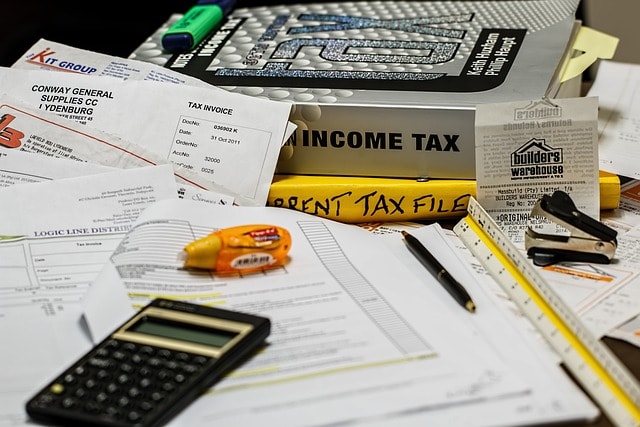
Do You Pay Tax on Forex Trading in the UK?
As a forex trader, do you have to pay tax trading forex? The answer is “Yes”, you may need to pay tax on forex trading profits in the UK, but the specifics depend on how you trade, the type of account you use, and your individual circumstances. The tax treatment for forex traders varies depending on whether you trade as a hobby, a self-employed individual, or through a limited company.
Table of Contents

How Forex Trading is Taxed in the UK
The HMRC (HM Revenue and Customs) categorizes income from forex trading, also known as foreign exchange trading, into different tax brackets based on the nature of your forex trading activities:
1. Capital Gains Tax (CGT)
If you trade forex as an investor rather than as a business, your profits may fall under capital gains tax. This typically applies to casual forex traders who treat trading as a secondary activity or investment.
- Tax-Free Allowance: The UK offers a CGT allowance (£6,000 for the 2023/24 tax year). If your total gains for the year are below this threshold, you won’t pay capital gains tax.
- Tax Rates:
- 10% for basic-rate taxpayers.
- 20% for higher and additional-rate taxpayers, applied to gains above the allowance.
2. Income Tax
If HMRC considers your trading as a primary source of income, your profits might be taxed as income tax instead of capital gains.
- When This Applies:
- If you are a professional trader, HMRC may classify you as self-employed, and your profits will be subject to income tax.
- Tax rates range from 20% to 45% depending on your earnings.
- Self-Employed Traders:
- You’ll need to register with HMRC as self-employed and file an annual tax return.
- Trading expenses (e.g., software subscriptions, internet costs) may be deductible from your taxable income.
3. Spread Betting (Tax-Free Option)
Spread betting is often considered a tax-free way to engage in forex trading in the UK.
- Why It’s Tax-Free: HMRC treats profits from spread betting as gambling winnings, which are not subject to income tax or capital gains tax.
- Limitations:
- Spread betting platforms may charge wider spreads, making it less profitable than traditional trading for some.
- If HMRC determines that you rely heavily on spread betting for income, they may review your status, though this is rare.
Trading Through a Limited Company
If you run your trading activities as a business through a limited company, profits will be subject to corporation tax rather than personal income tax.
- Corporation Tax: Currently set at 19% (rising to 25% for higher profits from April 2023).
- Advantages:
- Lower tax rates compared to personal income tax for high earners.
- You can reinvest profits within the company or pay yourself through dividends (which may have a lower tax rate than salary).
- Disadvantages:
- Running a limited company involves additional administrative work and costs, such as filing annual accounts.
Key Points to Consider for Forex Traders

Tax Obligations
Regardless of how you trade, it’s essential to keep accurate records of all your trades, profits, and losses. These records will help you calculate your tax liability and provide evidence if HMRC audits your activities.
Is Forex Trading Profits Always Tax-Free?
No, forex trading profits are not automatically tax-free. It depends on your trading style and the type of account you use. Spread betting accounts offer tax-free trading, while traditional forex trading accounts do not.
Seek Professional Advice
Tax laws can be complex, and HMRC’s classification of your trading activities may vary depending on your situation. It’s always a good idea to consult a tax professional to ensure compliance and optimize your tax strategy.
FAQs
How to Avoid Paying Tax on Forex Trading in the UK?
Avoiding taxes entirely on forex trading in the UK is not easy, as HMRC requires UK forex traders to report their income and gains according to specific rules. However, there are legitimate ways to minimize or even avoid taxes in certain cases.
| Method | Key Benefit | Considerations |
|---|---|---|
| Use a Spread Betting Account | Tax-free profits; no CGT or income tax. | Wider spreads and potential broker fees. |
| Stay Within the Capital Gains Tax Allowance | No tax if gains are under £6,000 annually. | Limited to casual or secondary trading. |
| Trade Through a Tax-Free ISA | Tax-free growth for currency-related investments. | Not suitable for direct forex trading. |
| Keep Your Trading Classified as a Hobby | Gains taxed under CGT with tax-free allowance. | Must not trade professionally or full-time. |
Is Forex Trading Legal in the UK?
Yes, forex trading is completely legal in the UK and is regulated by the Financial Conduct Authority (FCA). The FCA ensures that brokers follow strict guidelines, which makes the forex market safe for traders. By choosing a regulated broker and understanding the types of trading available, you can legally participate in the UK foreign exchange market.
Do Day Traders Pay Tax in the UK?
Yes, day traders pay tax in the UK, but how much depends on how HMRC categorizes your activity.
| Tax Type | When It Applies | Tax Rate |
|---|---|---|
| Capital Gains Tax (CGT) | Casual traders or those treating day trading as a secondary activity. | 10% (basic rate), 20% (higher/additional rate), with a £6,000 annual allowance. |
| Income Tax | Full-time day traders classified as self-employed or running a trading business. | 20% to 45%, depending on income. |
| Tax-Free Spread Betting | For traders using spread betting platforms. | No tax applies unless HMRC reclassifies activity as professional trading. |
Do you pay tax on forex trading in the U.S.?
Yes, forex trading in the U.S. is taxable, but how you’re taxed depends on your trading activities. Most forex traders will fall under Section 988, where profits are taxed as ordinary income (which could be up to 37%). However, if you’re trading futures or forex options, you may be able to elect Section 1256, which allows you to pay taxes at more favorable rates (60% long-term capital gains and 40% short-term capital gains).
Summary
- Capital Gains Tax applies to casual traders treating forex as an investment, with tax-free allowances available.
- Income Tax applies if you trade frequently and are classified as self-employed, with rates based on your total income.
- Spread Betting offers a tax-free way to trade forex but may come with higher trading costs.
- Trading through a limited company can reduce tax rates but involves additional administration.
Understanding your tax obligations as a forex trader is key to staying compliant and maximizing your profits. Always keep detailed records, and if in doubt, seek professional advice tailored to your trading setup.




Comments: 0